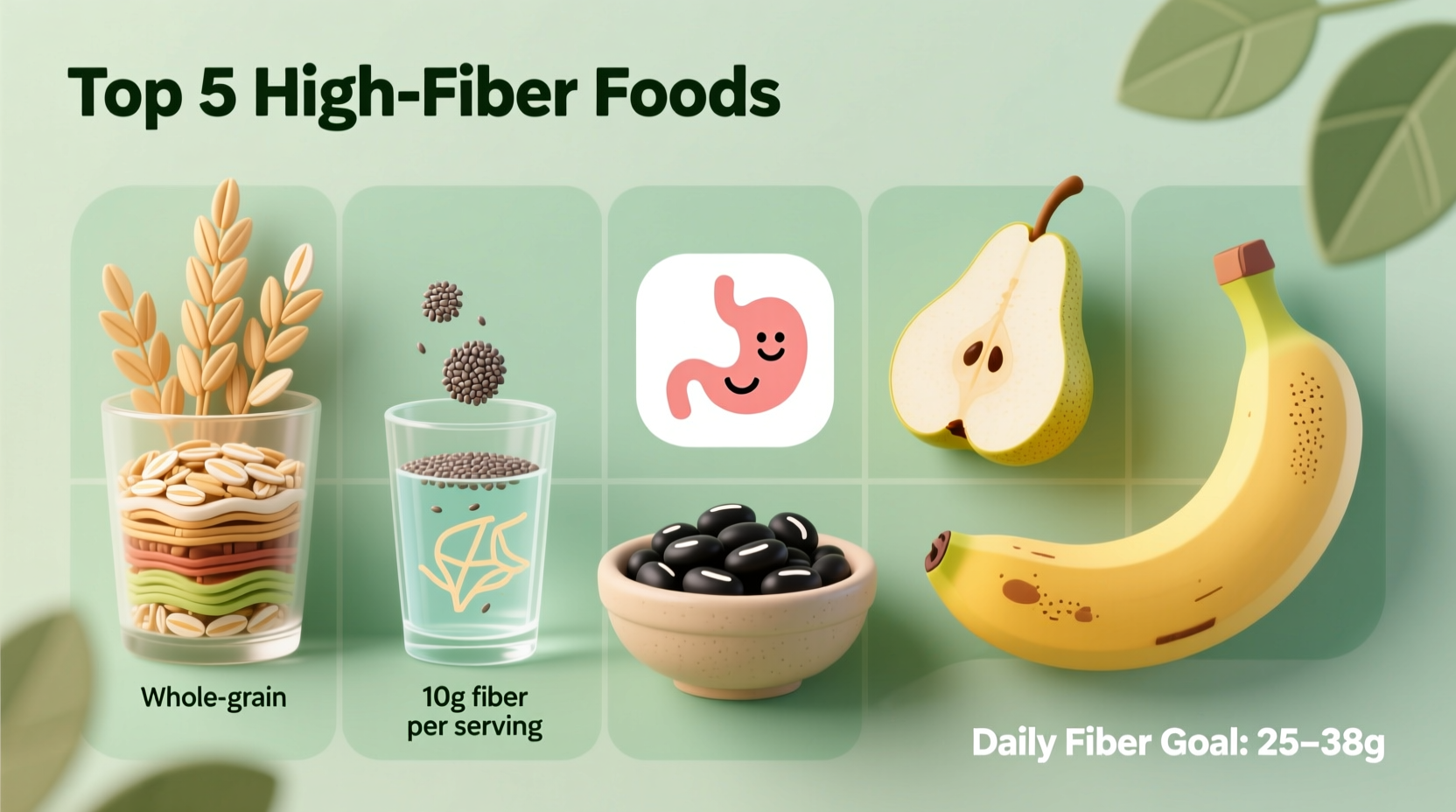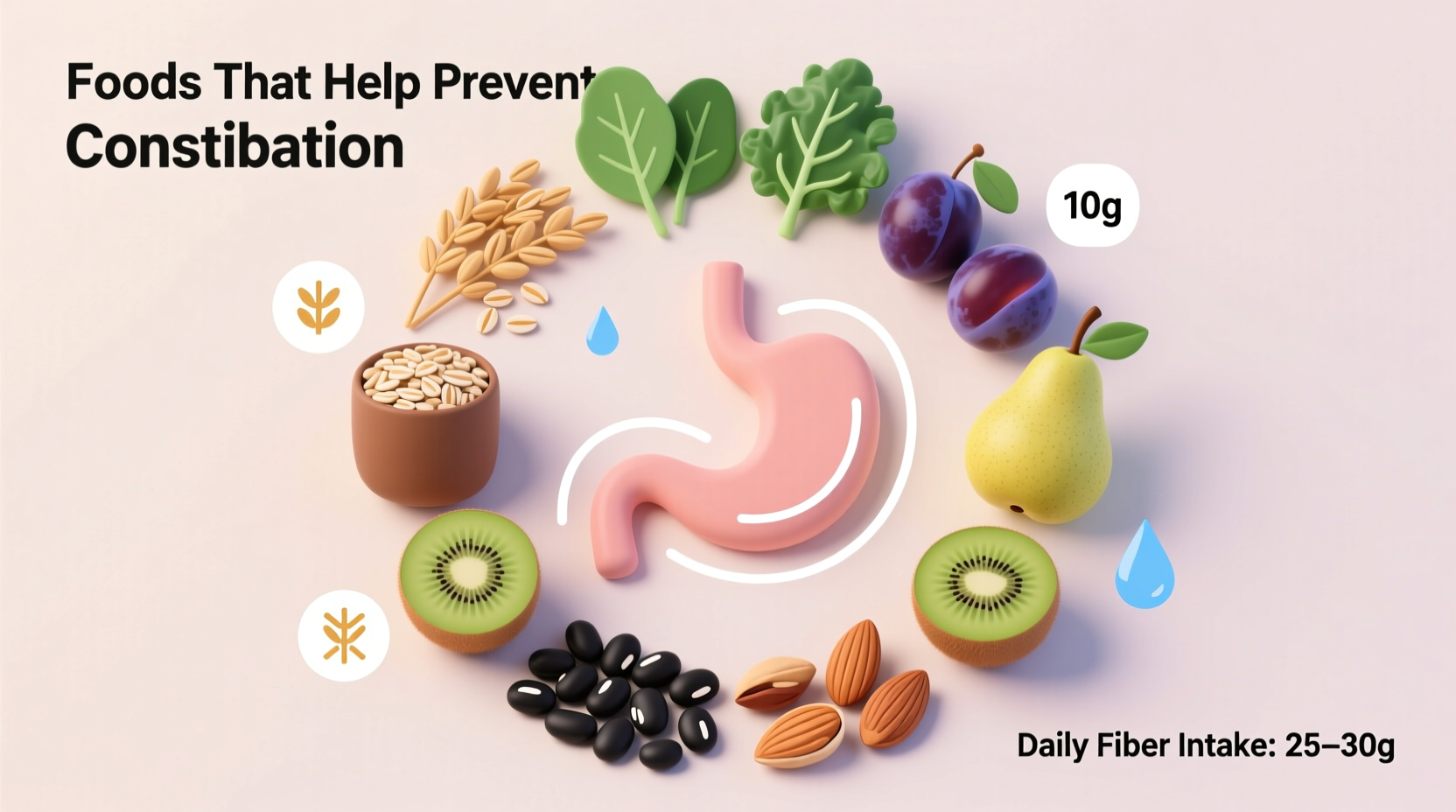Prunes, chia seeds, flaxseeds, apples with skin, pears, kiwi, legumes, and whole grains are the most effective foods for relieving constipation. These high-fiber options work by adding bulk to stool and stimulating bowel movements, with prunes showing particularly strong evidence for immediate relief due to their natural sorbitol content and dual fiber types.
Constipation affects nearly 16% of adults globally, causing discomfort that disrupts daily life. When you're searching for natural solutions beyond medication, dietary changes offer the safest and most sustainable approach. Understanding which foods genuinely help—and why they work—can transform your digestive health within days.
Immediate Relief Foods: Your 24-48 Hour Solution
When you need quick results, certain foods deliver noticeable improvement within one to two days. These options combine high fiber content with natural compounds that stimulate bowel activity:
- Prunes (4-5 daily): Contains 3g fiber per ¼ cup plus sorbitol, a sugar alcohol with natural laxative effects. A 2022 Clinical Gastroenterology and Hepatology study confirmed prunes outperform psyllium husk for constipation relief.
- Chia seeds (2 tbsp soaked): Absorbs 10x its weight in water, forming a gel that softens stool. Just two tablespoons provide 10g of fiber—40% of your daily requirement.
- Flaxseeds (1-2 tbsp ground): Rich in both soluble and insoluble fiber plus omega-3s that reduce gut inflammation. Research from the National Center for Complementary and Integrative Health shows ground flaxseed increases bowel movement frequency by 30% in constipated adults.
Preventative Power Foods: Building Daily Digestive Health
For lasting relief, incorporate these foods into your regular diet. They maintain consistent bowel function through balanced fiber profiles:
| Foods for Constipation Relief | Fiber Per Serving | Key Active Compounds | Recommended Daily Amount |
|---|---|---|---|
| Apples (with skin) | 4.4g | Pectin, polyphenols | 1-2 medium |
| Pears (with skin) | 5.5g | Sorbitol, fructose | 1 large |
| Kiwi (Zespri green) | 2.1g | Actinidin enzyme | 2 medium |
| Black beans | 15g | Resistant starch | ½ cup cooked |
| Oat bran | 14.5g | Beta-glucan | ⅓ cup dry |
This comparison shows why variety matters—different fibers work through distinct mechanisms. Kiwi's actinidin enzyme, for example, accelerates intestinal transit time by 31% according to a National Institutes of Health study, while black beans' resistant starch feeds beneficial gut bacteria.
Implementation Guide: Making Dietary Changes That Stick
Simply adding high-fiber foods isn't enough—you need strategic implementation:
- Hydration pairing: For every 5g of fiber added, drink 8oz additional water. Fiber without adequate fluids can worsen constipation.
- Gradual increase: Add 5g fiber every 3 days. Sudden increases cause bloating—your gut needs time to adjust its microbiome.
- Timing matters: Consume insoluble fiber (wheat bran, vegetables) at breakfast for daytime movement stimulation. Save soluble fiber (oats, legumes) for dinner to work overnight.
A 2023 American Journal of Gastroenterology clinical trial demonstrated participants who followed this phased approach achieved regular bowel movements 63% faster than those making abrupt dietary changes.

Important Considerations and Limitations
While dietary changes help most cases, certain situations require medical evaluation:
- Fiber may worsen symptoms in IBS-C patients during flare-ups—consult a dietitian for personalized FODMAP guidance
- People with strictures or bowel obstructions should avoid high-fiber diets without medical supervision
- Chronic constipation lasting over 3 weeks despite dietary changes warrants medical evaluation
The Mayo Clinic emphasizes that sudden constipation changes in adults over 50 could indicate serious conditions requiring immediate attention.
When to Seek Professional Help
Dietary approaches work for 85% of occasional constipation cases, but see a doctor if you experience:
- Constipation lasting more than three weeks despite dietary changes
- Blood in stool or black/tarry stools
- Unexplained weight loss with constipation
- Severe abdominal pain accompanying bowel changes
These could indicate underlying conditions like hypothyroidism, diabetes complications, or colorectal issues that require medical intervention beyond dietary solutions.











 浙公网安备
33010002000092号
浙公网安备
33010002000092号 浙B2-20120091-4
浙B2-20120091-4